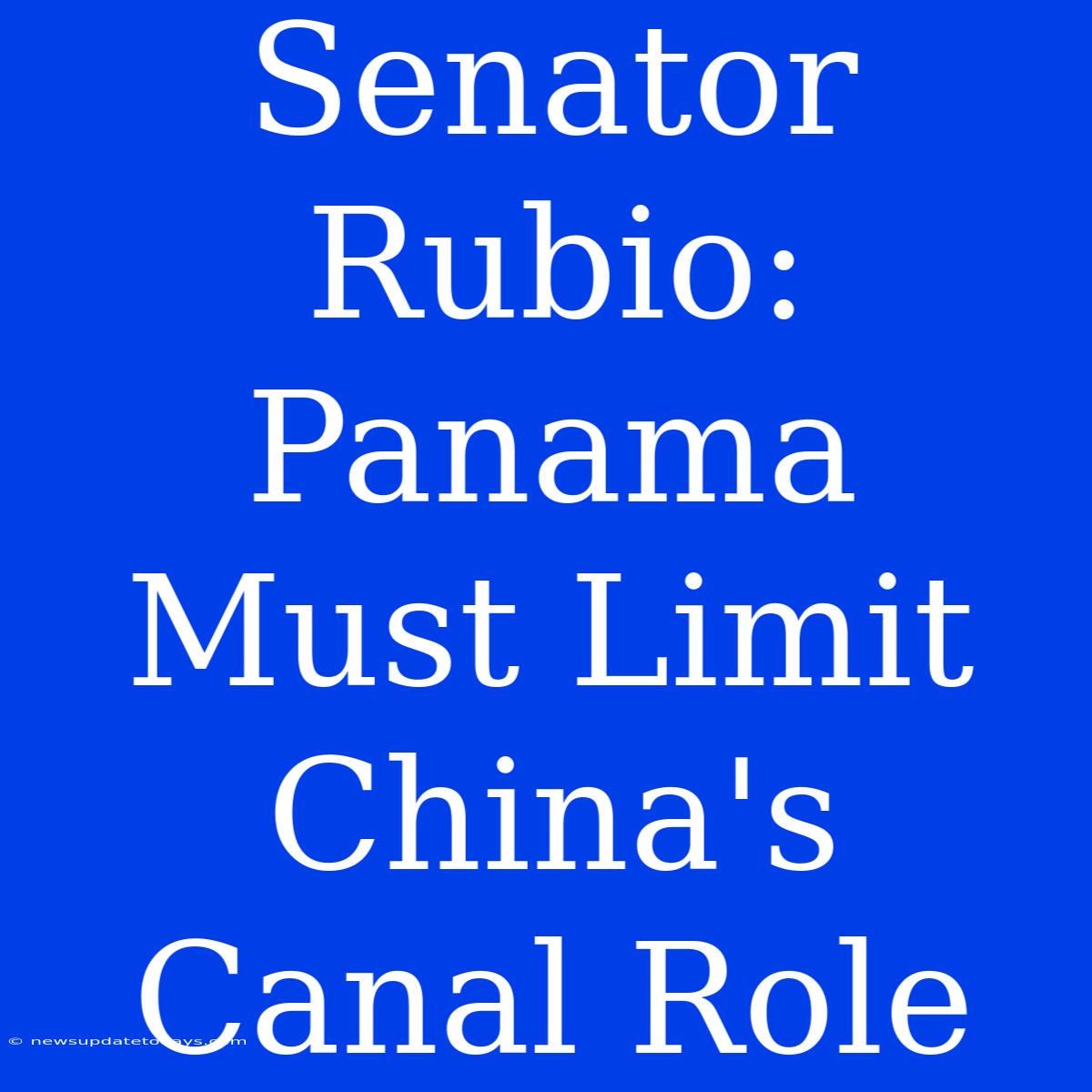Senator Rubio Warns: Panama Must Curb China's Influence on the Canal
Panama's strategic canal faces a growing challenge: the expanding influence of China. Senator Marco Rubio's recent statements highlight escalating concerns about Beijing's increasing role in the Panama Canal's operations and surrounding infrastructure. This article delves into the senator's concerns, the geopolitical implications, and the potential ramifications for Panama and the United States.
Rubio's Call for Caution: A Geopolitical Tightrope
Senator Rubio, a prominent voice on national security issues, has issued a stark warning to Panama: limiting China's involvement in the Panama Canal is crucial for regional stability and national security. His concerns center around the potential for China to leverage its economic influence to gain undue control over this vital waterway, impacting global trade and potentially posing a security risk.
The senator's arguments are rooted in several key concerns:
-
Economic Dependence: China's growing investments in Panamanian infrastructure, including projects related to the canal, raise concerns about creating an unhealthy level of economic dependence. This could leave Panama vulnerable to Chinese political pressure.
-
Security Risks: The strategic importance of the Panama Canal cannot be overstated. A significant Chinese presence raises questions about potential surveillance capabilities and the potential for disruption to global shipping lanes.
-
Debt Trap Diplomacy: There are fears that China's investment model, often involving significant loans, could trap Panama in a cycle of debt, further increasing Beijing's influence.
Panama's Balancing Act: Navigating Great Power Competition
Panama faces a complex dilemma. It needs foreign investment to support its economic growth and maintain the canal's infrastructure. However, it must also carefully balance its relationships with major global powers, particularly the United States and China. Completely rejecting Chinese investment could severely hamper its economic development, while embracing it too enthusiastically could compromise its sovereignty and strategic position.
The key for Panama lies in strategic diversification of investments, transparent contracting processes, and a strong commitment to upholding its national interests. This requires a sophisticated approach that avoids over-reliance on any single nation.
The Stakes for the United States: Maintaining Regional Stability
The United States has long held a significant interest in the Panama Canal's security and operations. The canal is a vital artery for global trade and a key element of U.S. national security strategy. Senator Rubio's concerns reflect a broader U.S. apprehension about China's expanding global influence.
The U.S. government is likely to continue closely monitoring the situation, potentially offering support to Panama through alternative investment options and diplomatic engagement. This could involve strengthening existing partnerships and offering technical assistance to improve the canal's infrastructure and security.
Conclusion: A Delicate Balance for Panama
Senator Rubio's warning serves as a significant reminder of the geopolitical complexities surrounding the Panama Canal. Panama must navigate this delicate balance, prioritizing its national interests and ensuring that its economic development does not come at the cost of its sovereignty and regional stability. The coming years will be crucial in determining the future trajectory of the canal and the balance of power in the region. The international community will be watching closely.

